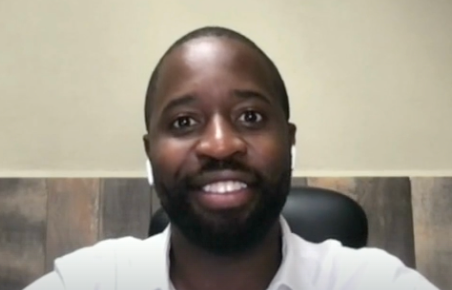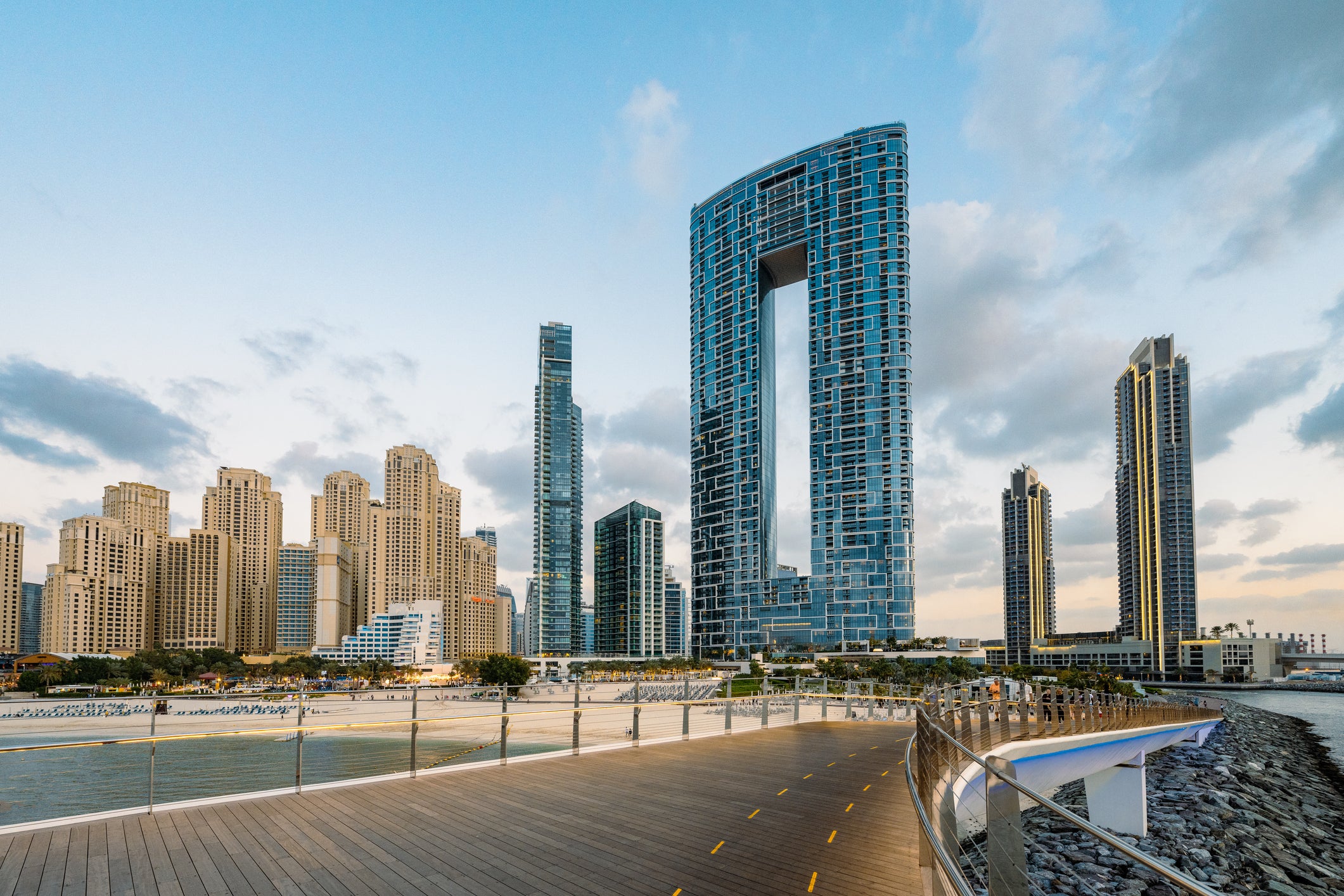‘Modern-day Moses’ behind massive church scam accused of rebranding as a ‘life coach’ to run Ponzi scheme
Exclusive: Convicted con artist Lindani “Daniel” Mangena was previously sentenced to seven years behind bars for bilking at least 1,000 parishioners

Your support helps us to tell the story
From reproductive rights to climate change to Big Tech, The Independent is on the ground when the story is developing. Whether it's investigating the financials of Elon Musk's pro-Trump PAC or producing our latest documentary, 'The A Word', which shines a light on the American women fighting for reproductive rights, we know how important it is to parse out the facts from the messaging.
At such a critical moment in US history, we need reporters on the ground. Your donation allows us to keep sending journalists to speak to both sides of the story.
The Independent is trusted by Americans across the entire political spectrum. And unlike many other quality news outlets, we choose not to lock Americans out of our reporting and analysis with paywalls. We believe quality journalism should be available to everyone, paid for by those who can afford it.
Your support makes all the difference.A “modern-day Moses” who spent seven years in a UK prison after scamming churchgoers out of more than $4 million has quietly re-emerged under a new name as a “life coach,” allegedly pushing a bogus get-rich-quick scam in the United States.
Lindani Mangena was convicted in a London court in 2008 following a years-long swindle that conned at least 1,000 parishioners from Seventh Day Adventist congregations in London. Promising returns of up to 3,000 percent, Mangena’s victims lost it all while he spent big on luxury cars, pricey real estate, and jaunts to Dubai’s seven-star Burj Al Arab hotel. Mangena, who was then 24, showed no detectable remorse, a judge in his case wrote in denying his appeal.
Today, Mangena is allegedly back in business — as “Daniel” Mangena — and running a Ponzi scheme that has duped a fresh set of unwitting victims, according to a lawsuit obtained by The Independent.
In the suit, which was filed October 10 in New York State Supreme Court, New York City real estate brokers Paul Gavriani and Vince Falcone claim Mangena not only stole close to $1 million from them, but has also fleeced an “untold” number of others who were unaware of his crooked past.
A review of New York court filings turns up a half-dozen claims of non-payment by various entities; in August, a federal judge in Manhattan found Mangena in default after failing to respond to claims by a New Jersey woman who accused Mangena of bilking her out of a six-figure sum “based on false promises,” after which he “gaslit” her into believing the losses were her own fault.
“I don’t recall it being a crime to have money problems,” Mangena, now 40, told The Independent in an email on Tuesday, noting that he has not yet been formally served with a copy of the lawsuit.

Mangena, who reportedly now lives either in the United Arab Emirates or Los Cabos, Mexico but would only cop to residing abroad, took exception to the notion he is running a Ponzi scheme. He claimed he planned on paying back the funds, which he described as a loan, “when I am financially able to do so,” and blamed Gavriani, Falcone, and others as being the “root cause of my current financial troubles.”
“I could easily have filed for bankruptcy given my current state but elected to ignore the attacks and stick to my financial commitments,” Mangena said.
He further accused Gavriani of being “one of a group of people who obsessively call me Lindani Mangena despite my name being Daniel.” However, Mangena is also listed in at least one other New York court case as Daniel Mangena, aka Lindani Mangena.
Gavriani, 54, first linked up with Mangena in October 2020, after he chanced upon him being interviewed on a podcast, according to the lawsuit. Mangena, who is interviewed regularly on finance webcasts, claims to have helped “hundreds of people [generate] passive income — earning money from investments with minimal effort — by helping them invest in unsexy businesses,” the lawsuit goes on, with Mangena himself claiming the technique earned him between $30,000 and $50,000 monthly.
His boasts intrigued Gavriani, who was approaching retirement and “looking to diversify his business interests into areas that aligned with his creative endeavors,” the lawsuit says.
Gavriani excitedly signed up for Mangena’s program, paying a $4,000 initiation fee, then $1,000 a month for weekly one-on-one coaching sessions with Mangena as well as “lifetime access” to his online offerings, according to the suit.
A little less than two months in, Mangena started to formulate a “vision” for Gavriani — who was unaware of his mentor’s criminal past — to earn enough passive income to quit his job and be the “artist” he always dreamed of being, according to the lawsuit. The big idea, or, the “Ideal Life Blueprint,” as Mangena called it, involved Gavriani bankrolling an ecommerce store on Facebook, which would sell bass fishing lures and non-prescription inhalers.
But after Gavriani, as directed, spent $30,000 to set up a slew of LLCs, and paid a $40,000 setup and management fee to the day-to-day operations team, the store opened in July 2021 — four months behind schedule — to a resounding flop. The operations people said the decision to offer the lures and inhalers had been “research-based,” and claimed to have no idea why the venture was failing, the lawsuit alleges. Gavriani demanded his money back, but never saw a dime, according to the suit.
With Gavriani’s finances in disarray, Mangena had a new plan to put money in his pocket: arbitraging textbooks by buying cheap and selling them for more on Amazon, the documents state. Mangena allegedly assured him that he personally would be running this store, so there was no chance of him getting ripped off.
So, Gavriani paid a $15,000 setup fee, and a month later, Mangena began sending weekly checks ranging from $600 to $750, the suit says.

Yet, Mangena never actually set up any store, and the so-called profits were either “his own funds or with the funds of others that Defendant Mangena had connived into ‘investing’ with him,” according to the lawsuit.
“In other words,” it says, “Mangena was operating a Ponzi scheme, in which he had entangled Mr. Gavriani.”
From there, Mangena convinced Gavriani to underwrite “bridge loans” for others in his group coaching class, doling out some $400,000 in return for $18,000 a month in interest payments, which came in as promised, the lawsuit states. In October 2022, Falcone inquired about possibly investing some of his own money with Mangena, and put up an initial payment of $100,000 to launch his own Amazon store.
Everything was smooth sailing, until January 2023, when Gavriani suddenly received half his usual monthly payment. Mangena blamed it on “some kind of issue with the bank.” But their supposedly guaranteed payments continued to dwindle, if they came in at all, the suit contends.
The underpayments continued into March, and when Gavriani questioned Mangena about it, he became upset, according to the lawsuit.
“Mangena berated Mr. Gavriani for having repeatedly contacted him about missing payments and because the call was supposedly dragging him away from hanging out with billionaire Richard Branson on Branson’s private island, a trip on which Defendant Mangena had spent ‘seven figures,’” the suit states.

A week later, Mangena sent Gavriani the other half of his money, and continued to provide the full amount each month, the lawsuit goes on. But by late spring 2023, the payments stopped altogether, the lawsuit says, adding that Gavriani and Falcone subsequently learned of Mangena’s UK fraud conviction.
When Gavriani tried to dissolve their co-ventures and cash out his funds, his lawsuit claims Mangena accused him of having “paranoid delusions,” threatened to sue, then disappeared.
“Lies and more lies,” Mangena told The Independent, insisting he never claimed to have paid to pal around with Richard Branson.
“Any ‘berating’ would be my chastisement for harassing my ex-wife and mother of my child on Facebook with this same grade of bogus claim to the point of her having to block him,” Mangena said. “The bottom line here is we had a loan agreement which includes terms for late payment, a loan which was paid for a significant period of time until which point I did indeed fall behind and asked for time to sort that.”
Mangena conceded that he did cut communication with Gavriani, but vowed that he “remain[s] committed to meeting the terms of loan repayment as per contract.”
For their part, Gavriani and Falcone’s lawsuit says they “have lost nearly $1,000,000 from both the money that Defendant Mangena stole from them,” and are asking for compensatory and punitive damages, plus legal fees.
“I have not been on US soil since September 2019,” Mangena said on Tuesday before ceasing contact, noting that he presently lacks a visa to enter the country. “... So, [I] cannot even be served, nor attend any court appearances, which Mr. Gavriani is aware of... That is all from me and thank you for the opportunity to respond.”